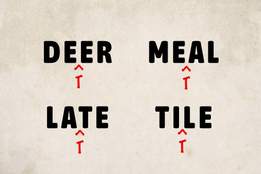Word of the Day
: June 15, 2025progeny
playWhat It Means
Progeny refers to the child or descendant of a particular parent or family. Progeny can also refer to the offspring of an animal or plant, or broadly to something that is the product of something else. The plural of progeny is progeny.
// Many Americans are the progeny of immigrants.
// The champion thoroughbred passed on his speed, endurance, and calm temperament to his progeny, many of whom became successful racehorses themselves.
// This landmark study is the progeny of many earlier efforts to explore the phenomenon.
progeny in Context
“‘I am (We are) our ancestors’ wildest dreams.’ The phrase originated from New Orleans visual artist, activist, and filmmaker Brandan Odums, and was popularized by influential Black figures like Ava Duvernay, who used the phrase in tribute to the ancestors of First Lady Michelle Obama. Melvinia Shields, who was born a slave in 1844, would be survived by five generations of progeny, ultimately leading to her great-great-great granddaughter—Michelle Obama ...” — Christopher J. Schell, “Hope for the Wild in Afrofuturism,” 2024
Did You Know?
Progeny is the progeny of the Latin verb prōgignere, meaning “to beget.” That Latin word is itself an offspring of the prefix prō-, meaning “forth,” and gignere, which can mean “to beget” or “to bring forth.” Gignere has produced a large family of English descendants, including benign, engine, genius, germ, indigenous, and genuine. Gignere even paired up with prō- again to produce a close relative of progeny: the noun progenitor can mean “an ancestor in the direct line,” “a biologically ancestral form,” or “a precursor or originator.”
Word Family Quiz
Fill in the blanks to complete a relative of Latin gignere that refers to the state of being the firstborn of the children of the same parents: _ r _ _ o g _ _ _ t _ r e.
VIEW THE ANSWERPodcast
More Words of the Day
-
Jun 14
vexillology
-
Jun 13
rambunctious
-
Jun 12
impute
-
Jun 11
debilitating
-
Jun 10
minutia
-
Jun 09
eloquent











